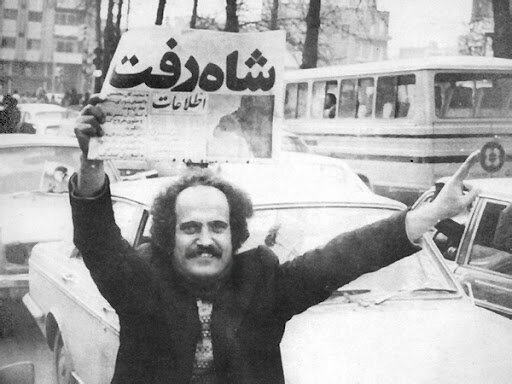
I had known Manmohan Singh briefly when he was finance minister and I was the director of the Intelligence Bureau, but had no occasion to understand the makings of his mind or vision. Years later, as special adviser and the National Security Adviser (2004-2010), I had the opportunity to better comprehend his vision. Being one of the prime minister’s close advisers, I realised that economics was but one aspect of his encyclopaedic mind and that here was someone who ranked among the makers of modern history.
His gentle mien concealed a steely resolve to achieve what he believed was in the best interest of the nation. Also, once he had set his mind on something, he would not stop till he had achieved it. An outstanding example was when the left parties withdrew their support to his government after the India-US nuclear deal was finalised in 2008.

He was willing to sacrifice his prime ministership and his government, rather than giving up on the nuclear deal. He did not believe in power politics, but like any good chess player, he knew where to move the pieces on the board to defeat his opponents gently rather than decimate them. While his tenure as finance minister is identified with economic reforms, the India-US nuclear deal (2005-2008) marked his tenure as prime minister, notwithstanding the fact that he had several other achievements to his credit.
It was my good fortune to work closely with him at each and every stage of the epic nuclear saga, and I can say, without fear of contradiction, that there would have been no nuclear deal without Manmohan Singh. The role of US president George W. Bush was no less in this regard.
Some background to this eponymous event may be in order. It arose from a brief conversation between Singh and Bush on the sidelines of the UN General Assembly in New York in the fall of 2004. At this meeting, and in response to a request from the prime minister, president Bush promised to help by easing restrictions on India, specially regarding nuclear trade and technology―a giant leap forward considering that India was very much under ‘sanctions’ following the Pokhran nuclear tests of 1998.
As the pointsman for the deal, I was privy to every single twist and turn in the negotiations which, despite the warmth in relations at the highest level, met with stiff opposition from within the system. At every chokepoint in the negotiations, the intervention of Bush became necessary and his reply to questions put to him was inevitably whether Manmohan Singh supported the Indian viewpoint. If answered in the affirmative, he had only one reply: ‘Manmohan is a good man and I would endorse what he wants’.
I do not wish to labour on the minutest details of the deal here, including a mention of the iconic 123 Agreement, or the unique waiver on nuclear issues given by the International Atomic Energy Agency (IAEA) to India, except to affirm that not only the US, but most countries, and also the IAEA had full faith in the word of Manmohan Singh. No greater compliment could be given to an individual, who thus came to be regarded not merely as the prime minister of one nation, but also the conscience of the world. He had a unique relationship with Russian President Vladimir Putin and India-Russia relations scaled new heights under his tenure on military, nuclear and economic matters.
Singh and Japanese prime minister Shinzo Abe established an ‘entente cordiale’ unparalleled in India’s diplomatic history. Singh’s 10 years as prime minister also witnessed Sino-Indian relations at possibly its most cordial level in recent times, and the 2005 India-China ‘Agreement on Political Parameters and Guiding Principles for the Settlement of the India-China Boundary Question’ was testimony to the warmth of the relationship that existed at the time. I recall that at his first meeting with Barack Obama in Washington in 2009, the US president paid obeisance by affirming ‘Manmohan Singh, you are my guru’.
Another similar moment emerged during the difficult days in 2008-2009, when the world was reeling under the ‘sub prime crisis’ in the US when, at a meeting of world leaders in Ekaterinburg (Russia), speaking after leaders like Gordon Brown and Hu Jintao, often at cross purposes, the conference chairman turned to the economist prime minister of India, who in 15 minutes not only summed up the situation but came up with solutions which were then unanimously endorsed by the world leaders. Also Read Manmohan Singh's leadership style was rooted in dignity, respect and unwavering dedication to the nation Selected excerpts from 'Strictly Personal: Manmohan & Gursharan' by daughter Daman Singh Exclusive: 'Manmohan was my role model and a master in persuasion', says Montek Singh Ahluwalia How Manmohan Singh deterred an aggressive China by raising an attack corps How Manmohan Singh steered a coalition government successfully Manmohan Singh the PM versus Manmohan Singh the FM Manmohan Singh was loathe to dabble in security and other matters, and he left them to his ministers and officials. He, however, kept a careful eye on the budget provisions.
I realised (and to my benefit) that when needed he could be a tower of strength as was the case during the 2008 terrorist attacks in Mumbai. The security establishment had come under bitter attack from the rest of the country, but Manmohan Singh, the ‘gentle giant’, backed the security establishment to the hilt. While most of India’s leaders wanted action against Pakistan for allowing the terrorists to use its territory to plan and plot attacks on India, Singh did not believe that bombing places in Pakistan would be a suitable antidote and he had a point.
As subsequent events proved, Pakistan is currently weighed down by the presence of several terrorist groups that it had nurtured on its territory, even as India has attained new heights. There are several more aspects that could be touched upon to explain the phenomenon that was Manmohan Singh. I shall end by affirming an old statement―future generations may wonder whether such a leader ever walked the earth.
Narayanan is former director of the Intelligence Bureau, former National Security Adviser and former governor of West Bengal..















